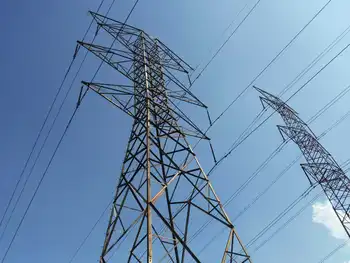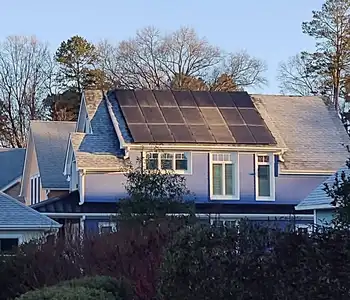EVs widely available by 2012
TORONTO, ONTARIO - Fully electric vehicles should be widely available to Canadian consumers within two years, with offerings in the pipeline from Nissan, Ford, Toyota, Mitsubishi and others, automakers say.
"I think what you're hearing across the board is that 2012 is the time when you're going to have critical mass and a huge number of electric products coming forward from every manufacturer," Stephen Beatty, managing director of Toyota Canada, told a conference on green vehicle technology in Toronto.
"That becomes the big moment when you see that transformation in the auto industry in North America and electric comes on big time. It'll be very fascinating to see how the market responds to that," Beatty added.
Nissan is poised to be the first major carmaker to introduce a purely electric consumer vehicle into the Canadian market, with its Leaf set to be in showrooms here by late 2011, said Mark McDade, director of marketing at Nissan Canada.
Nissan will begin selling the Leaf in the United States this December.
Ford, meanwhile, said it plans to launch its Transit Connect battery-electric van and an electric version of the Focus sedan in roughly the same timeframe. Mitsubishi hopes to begin selling its zero-emission i-MiEV in Canada by late 2011 and Toyota intends to launch an all-electric commuter car by 2012.
Beatty predicted that there will be eight to 12 fully electric vehicles on the market in Canada by 2012. Currently, only small companies like Tesla Motors sell zero-emission cars here.
None of the major automakers are ready to disclose what their electric vehicles will sell for in Canada, but in the United States Nissan has priced the Leaf at US $32,700, not including government subsidies. By comparison, Tesla's Roadster sports car sells for more than $100,000.
Despite predictions of widespread availability in the next two years, fully electric vehicles — as opposed to their gasoline-electric hybrid counterparts — face several hurdles before they will be widely adopted by consumers.
Electric vehicles can currently only drive relatively short distances — the Leaf has a range of 160 kilometres — before they need to be recharged, resulting in so-called range anxiety. By comparison, hybrids have a traditional internal combustion engine that will kick in and allow a driver to keep going long after the car's electric charge is depleted.
On top of this, fully electric cars require more time than their hybrid counterparts to recharge. Nissan says it will take about eight hours to recharge a Leaf using a 220-volt electric plug — the kind used by most electric clothes dryers. Charging using a standard 110-volt outlet could take twice that. Nissan is giving Leaf customers in the U.S. the option of buying a home charging station at an estimated cost, including installation, of $2,200.
By comparison, General Motors' new hybrid Chevrolet Volt has a smaller battery than the Leaf and can't go as far on full electric power. But it can be fully recharged in eight hours on a standard 110-volt home outlet. Using a 220-volt outlet, it takes less than four hours.
In Canada, Nissan has partnered with governments and electricity providers in Quebec and British Columbia to start building the charging infrastructure necessary for fully electric vehicles like the Leaf.
Dean Stoneley, vice-president of marketing for Ford Canada, said the necessary infrastructure won't be build without government help.
"We need a retail charging network, charging at work, at home, all of that," Stoneley said. "We certainly need government help and we're going to need incentives. We need rebates. We need the government to help educate people in order to make that a reality."
Even with the necessary infrastructure, Toyota's Beatty contends that most consumers will be wary of the brand new technology until they can see it used successfully by others. To attract ordinary consumers, both Beatty and McDade touted the benefits of selling new technology to large fleets first.
Toyota did this successfully with its hybrid Prius when Vancouver cab drivers began using them back in 2000.
"It got you that critical mass. There was street-level presence for hybrid technology, but it also proved that in a very demanding application, those cars stood up and stood up well," Beatty said.
"And for consumers, probably their first chance to ever know anything about a hybrid was to sit in the back seat of one of those cabs and to talk to the cabby and find out what the experience was."
The Vancouver cab experience went a long way towards creating interest in the Prius both in Canada and globally, and Nissan hopes to do the same thing with the Leaf by selling to municipal and government fleets, McDade said.
Government subsidies can also encourage consumers to try out a new technology. In the U.S., people who buy plug-in vehicles are eligible for a US $7,500 federal tax credit.
In Canada, there is no nationally available incentive, but British Columbia, Manitoba, Ontario, Quebec and Prince Edward Island all offer tax rebates or credits ranging from $1,000 to $3,000 on the purchase of a hybrid vehicle. In addition, Ontario plans to offer a $10,000 incentive for plug-in electric or hybrid vehicles as they become available.
However, Beatty cautioned that all government incentives will disappear eventually, and automakers need to create green technology that will be affordable and appealing to consumers with or without subsidies.
Related News

Ireland announces package of measures to secure electricity supplies
DUBLIN - Ireland's Cabinet has approved a package of measures to help mitigate the rising cost of rising electricity bills and to ensure secure supplies to electricity for households and business across Ireland over the coming years.
The package of measures includes changes to the Public Service Obligation (PSO) levy (beyond those announced earlier in the year). The changes will result in rebates, and thus savings, for domestic electricity bills over the course of the next PSO year beginning in October. This further reduction in the PSO levy occurs because of a fall in the relative cost of renewable energy, compared to…




